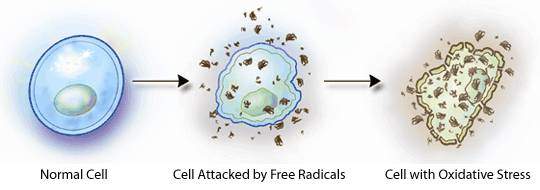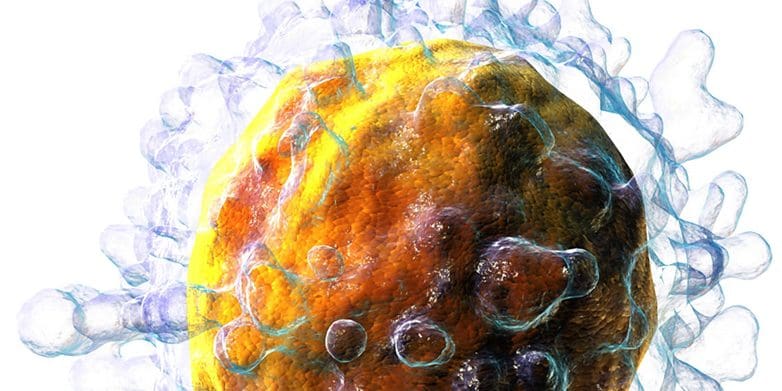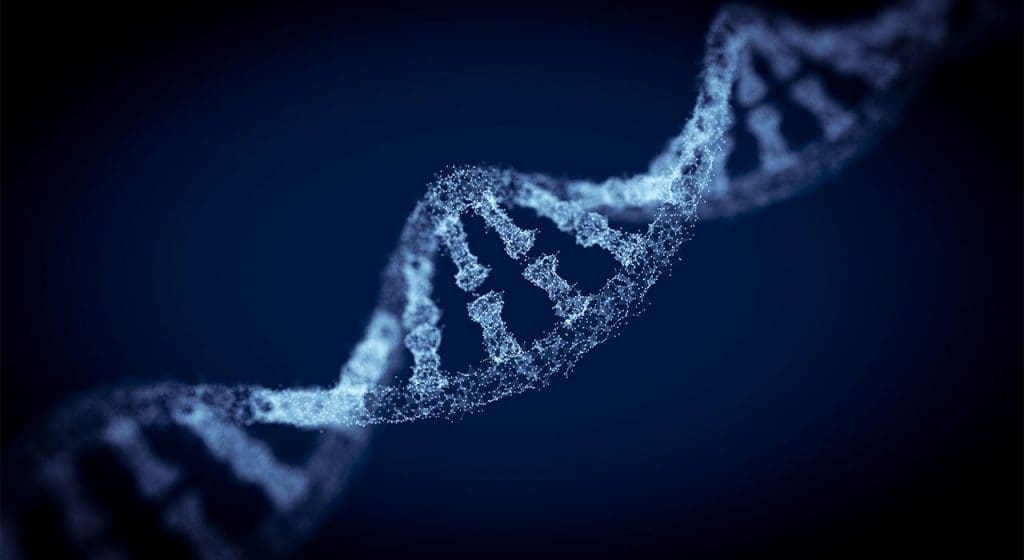The Nrf2 cell defense creates a pathway that provides protection against oxidative stress and disorders. It plays a vital role in maintaining cellular homeostasis and keeping each cell strand in check. Without the Nrf2 cell defense, oxidative stress can be excessive and directly cause or contribute to many common diseases. This includes cancer, osteoporosis, inflammatory bowel diseases, and neurodegeneration. Studies show that even oxidative stress can contribute to insulin resistance and multiple sclerosis.

Certain foods that are beneficial to the Nrf2 cell structure, due to their antioxidative properties; can enhance the Nrf2 cell gene gradually. Researchers studied that dietary sources that contain antioxidants flavonoids, fermented food and drinks that contain lactobacilli, and sulforaphane from cruciferous vegetables; are the contributors to aid the Nrf2 cell structure. With these certain foods in a person’s diet, it can be beneficial to combating oxidative stress and preventing oxygen toxicity from producing in the bloodstream.
Table of Contents
Food That Helps the Nrf2 Cell
Here are some of the foods that contain nutrients to help out the Nrf2 cell:
- Fruits: Red, blue and purple berries, red and purple grapes, apples, citrus fruits and juices (oranges, grapefruits, and lemons)
- Red wine
- Teas: Green, white, black, and oolong
- Chocolate
- Vegetables: Yellow onion, scallions, kale, broccoli, celery, hot peppers, greens beans
- Herbs: Parsley, thyme
- Legumes: Soybeans and other soy products, chickpeas, mung beans
With these types of antioxidant foods, they can help aid the body by lowering the stress compound naturally without the usage of medications. There are ways to get the nutrients of the different food groups to support the body and activate the Nrf2 pathways. Fermented foods that contain lactobacilli can express and activate the gene pathway.
Let’s start with Lactobacillus plantarum and Lactobacillus brevis. These two are the good bacteria that are found in traditional vegetables, fruit, and fermented malt whiskey. They help the body by breaking down the food that is being consumed, absorbing the nutrients, and fighting off the harmful organisms that are causing discomfort to the gut. When these two bacteria are expressing PAD (phenolic acid derivatives) and being introduced to a caffeic acid; the results are astonishing.
Studies indicate that particular strains of lactobacilli can biotransform the caffeic acid to potently activate the Nrf2 pathways from an inactive precursor.  So let’s say that if an individual is stressed and then they eat some food. Suddenly they feel a bit better after eating, that is because of the Nrf2 pathways mixed with the enhanced lactobacilli in their food helped neutralized the stress compound in the body.
With sulforaphane in cruciferous vegetables, it can help with the Nrf2 pathways. Since cruciferous plants have natural fighting properties against cancer, they have a good source of phytonutrients and the sulforaphane combined.
Here are some of the cruciferous vegetables that can help the Nrf2 pathway in the body.
- Arugula
- Bok choy
- Broccoli
- Brussels sprouts
- Cabbage
- Cauliflower
- Kale
- Radish
- Turnips
These vegetables are nutritious when they are eaten raw or cooked. Sulforaphane in the many cruciferous plants has been linked to many health benefits such as improving heart health and digestion. This compound has an inactive form of glucoraphanin, but when it comes in contact with myrosinase, it releases the glucosinolates. This means that when the cruciferous vegetables are either damaged, cut, chopped or chewed on, the myrosinase enzymes are activated and turning into sulforaphane.
Studies have even been shown that sulforaphane can prevent cancer cell growth by releasing antioxidants and detoxifying enzymes that protect carcinogens, which are substances that can cause cancer.
How the Nrf2 Cell Activates

The various molecules in them can exhibit a robust activation in the Nrf2 defense system. Researchers have studied that the Nrf2 defense pathway can provide natural protection against oxidative stress and chemical toxicity through relatively small electrochemical co-factors called Nrf2 activators.
These activators actually amplify the effect of ROS (reactive oxygen species) by cycling through oxidation-reduction reactions and liberating Nrf2 in the human endothelial cells. Since the human body can get sick from stress, it is essential to eat foods that can fight off the harmful organisms. Nrf2 cells do regulate the oxidative stress by releasing itself into the body’s system. It is crucial to make sure that good, nutritious food that is beneficial in helping the Nrf2 cells by doing it naturally.

With a person’s hectic lifestyle gets in the way, they start to feel overly stressed. The body begins to develop chronic ailments that can harm not only the outside of the body but the inside as well. When individuals go to see health care professional for any chronic diseases that they may have, they will be informed of remedies to help aid them the best way they can. Individuals can find ways to deal with the stress hormone and calm it down through functional medicine. So when the body develops oxidative stress, it will affect the organ system, the nerve system, and the neurological system.
With the Nrf2 cells, the cell structure goes towards the oxidative stress compound and put a stop to it. And with the nutritious food that is available to aid the Nrf2 cell more. When we can calm down our anxious mind through the use of functional medicine and by eating healthy, organic, whole foods; we are actually repairing the body from the inside out.
Conclusion
As stated from the beginning, the Nrf2 cell helps the body by protecting it against oxidative stress. When we add nutritious food into the collection, it is aiding the Nrf2 cells a whole lot. Since the entire body needs the nutrients from the different food groups to assist not only the Nrf2 cells but to all crucial organs that need the nutrient sources to function correctly. The scope of our information is limited to chiropractic, musculoskeletal, and nervous health issues as well as functional medicine articles, topics, and discussions. We use functional health protocols to treat injuries or chronic disorders of the musculoskeletal system. To further discuss the subject matter above, please feel free to ask Dr. Alex Jimenez or contact us at 915-850-0900 .
References
Bryan, Holly K, et al. “The Nrf2 Cell Defence Pathway: Keap1-Dependent and -Independent Mechanisms of Regulation.†Biochemical Pharmacology, U.S. National Library of Medicine, 15 Mar. 2013, www.ncbi.nlm.nih.gov/pubmed/23219527.
Coyle, Daisy. “Sulforaphane: Benefits, Side Effects, and Food Sources.†Healthline, 26 Feb. 2019, www.healthline.com/nutrition/sulforaphane.
Prochaska, H J, et al. “On the Mechanisms of Induction of cancer-protective Enzymes: a Unifying Proposal.†Proceedings of the National Academy of Sciences of the United States of America, U.S. National Library of Medicine, Dec. 1985, www.ncbi.nlm.nih.gov/pubmed/3934671.
Senger, Donald R., et al. “Activation of the Nrf2 Cell Defense Pathway by Ancient Foods: Disease Prevention by Important Molecules and Microbes Lost from the Modern Western Diet.†PLOS ONE, Public Library of Science, 17 Feb. 2016, journals.plos.org/plosone/article?id=10.1371%2Fjournal.pone.0148042.
Shaw, Pamela. “The Nrf2 Diet.†ALS Worldwide, 27 Jan. 2015, alsworldwide.org/care-and-support/article/the-nrf2-diet.
Su, Xuling, et al. “Anticancer Activity of Sulforaphane: The Epigenetic Mechanisms and the Nrf2 Signaling Pathway.†Oxidative Medicine and Cellular Longevity, Hindawi, 6 June 2018, www.ncbi.nlm.nih.gov/pubmed/29977456.
Post Disclaimer
Professional Scope of Practice *
The information herein on "Activating the Nrf2 Cell Defense Through Food El Paso, Texas" is not intended to replace a one-on-one relationship with a qualified health care professional or licensed physician and is not medical advice. We encourage you to make healthcare decisions based on your research and partnership with a qualified healthcare professional.
Blog Information & Scope Discussions
Welcome to El Paso's Premier Wellness, Personal Injury Care Clinic & Wellness Blog, where Dr. Alex Jimenez, DC, FNP-C, a Multi-State board-certified Family Practice Nurse Practitioner (FNP-BC) and Chiropractor (DC), presents insights on how our multidisciplinary team is dedicated to holistic healing and personalized care. Our practice aligns with evidence-based treatment protocols inspired by integrative medicine principles, similar to those on this site and our family practice-based chiromed.com site, and focuses on restoring health naturally for patients of all ages.
Our areas of multidisciplinary practice include Wellness & Nutrition, Chronic Pain, Personal Injury, Auto Accident Care, Work Injuries, Back Injury, Low Back Pain, Neck Pain, Migraine Headaches, Sports Injuries, Severe Sciatica, Scoliosis, Complex Herniated Discs, Fibromyalgia, Chronic Pain, Complex Injuries, Stress Management, Functional Medicine Treatments, and in-scope care protocols.
Our information scope is multidisciplinary, focusing on musculoskeletal and physical medicine, wellness, contributing etiological viscerosomatic disturbances within clinical presentations, associated somato-visceral reflex clinical dynamics, subluxation complexes, sensitive health issues, and functional medicine articles, topics, and discussions.
We provide and present clinical collaboration with specialists from various disciplines. Each specialist is governed by their professional scope of practice and their jurisdiction of licensure. We use functional health & wellness protocols to treat and support care for musculoskeletal injuries or disorders.
Our videos, posts, topics, and insights address clinical matters and issues that are directly or indirectly related to our clinical scope of practice.
Our office has made a reasonable effort to provide supportive citations and has identified relevant research studies that support our posts. We provide copies of supporting research studies upon request to regulatory boards and the public.
We understand that we cover matters that require an additional explanation of how they may assist in a particular care plan or treatment protocol; therefore, to discuss the subject matter above further, please feel free to ask Dr. Alex Jimenez, DC, APRN, FNP-BC, or contact us at 915-850-0900.
We are here to help you and your family.
Blessings
Dr. Alex Jimenez DC, MSACP, APRN, FNP-BC*, CCST, IFMCP, CFMP, ATN
email: [email protected]
Multidisciplinary Licensing & Board Certifications:
Licensed as a Doctor of Chiropractic (DC) in Texas & New Mexico*
Texas DC License #: TX5807, Verified: TX5807
New Mexico DC License #: NM-DC2182, Verified: NM-DC2182
Multi-State Advanced Practice Registered Nurse (APRN*) in Texas & Multi-States
Multi-state Compact APRN License by Endorsement (42 States)
Texas APRN License #: 1191402, Verified: 1191402 *
Florida APRN License #: 11043890, Verified: APRN11043890 *
Colorado License #: C-APN.0105610-C-NP, Verified: C-APN.0105610-C-NP
New York License #: N25929, Verified N25929
License Verification Link: Nursys License Verifier
* Prescriptive Authority Authorized
ANCC FNP-BC: Board Certified Nurse Practitioner*
Compact Status: Multi-State License: Authorized to Practice in 40 States*
Graduate with Honors: ICHS: MSN-FNP (Family Nurse Practitioner Program)
Degree Granted. Master's in Family Practice MSN Diploma (Cum Laude)
Dr. Alex Jimenez, DC, APRN, FNP-BC*, CFMP, IFMCP, ATN, CCST
My Digital Business Card
Licenses and Board Certifications:
DC: Doctor of Chiropractic
APRNP: Advanced Practice Registered Nurse
FNP-BC: Family Practice Specialization (Multi-State Board Certified)
RN: Registered Nurse (Multi-State Compact License)
CFMP: Certified Functional Medicine Provider
MSN-FNP: Master of Science in Family Practice Medicine
MSACP: Master of Science in Advanced Clinical Practice
IFMCP: Institute of Functional Medicine
CCST: Certified Chiropractic Spinal Trauma
ATN: Advanced Translational Neutrogenomics
Memberships & Associations:
TCA: Texas Chiropractic Association: Member ID: 104311
AANP: American Association of Nurse Practitioners: Member ID: 2198960
ANA: American Nurse Association: Member ID: 06458222 (District TX01)
TNA: Texas Nurse Association: Member ID: 06458222
NPI: 1205907805
| Primary Taxonomy | Selected Taxonomy | State | License Number |
|---|---|---|---|
| No | 111N00000X - Chiropractor | NM | DC2182 |
| Yes | 111N00000X - Chiropractor | TX | DC5807 |
| Yes | 363LF0000X - Nurse Practitioner - Family | TX | 1191402 |
| Yes | 363LF0000X - Nurse Practitioner - Family | FL | 11043890 |
| Yes | 363LF0000X - Nurse Practitioner - Family | CO | C-APN.0105610-C-NP |
| Yes | 363LF0000X - Nurse Practitioner - Family | NY | N25929 |
Dr. Alex Jimenez, DC, APRN, FNP-BC*, CFMP, IFMCP, ATN, CCST
My Digital Business Card





 Again, We Welcome You.
Again, We Welcome You.
Comments are closed.